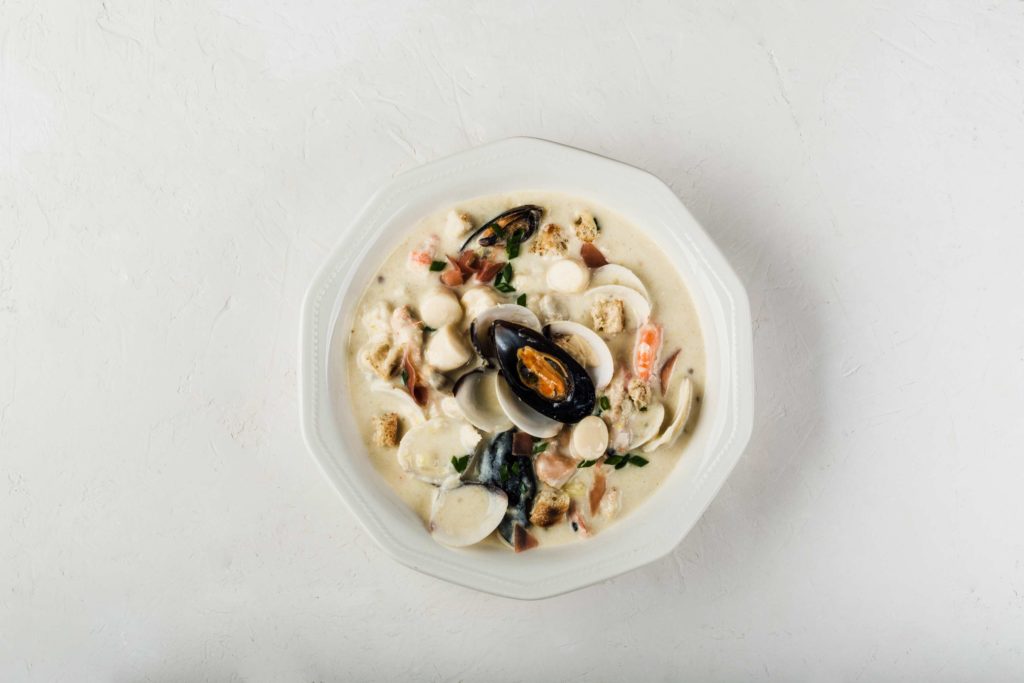The statistics for food waste in the US are eye-opening, with Americans trashing around 40% of all food produced. That’s roughly 80 billion lbs of food each year and around 219 lbs per person. This equates to nearly $1,600 per family, and this at a time when, according to the Greater Boston Food Bank, around 600,000 people in Massachusetts alone are food insecure.
As highlighted by the State Department of Environmental Protection (DEP), around a quarter of solid waste in the City of Boston is food, a hugely significant figure considering the impact organic waste has on the environment when not processed properly.
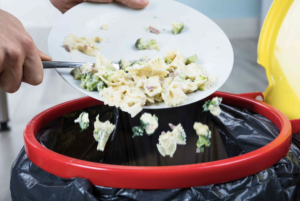 Today, much of this food waste ends up in landfill where it produces greenhouse gas emissions such as methane, a significant driver of climate change that’s 25% more harmful than carbon dioxide and a major contributing factor to environmental degradation. It also has the potential to contaminate groundwater supplies as it rots and creates leachate.
Today, much of this food waste ends up in landfill where it produces greenhouse gas emissions such as methane, a significant driver of climate change that’s 25% more harmful than carbon dioxide and a major contributing factor to environmental degradation. It also has the potential to contaminate groundwater supplies as it rots and creates leachate.
Food waste is both an economic problem for Boston and an environmental one too. This problem begins with production, moves through transportation and distribution, and eventually ends up in the hands of the consumer, with waste occurring at all stages of the chain.
However, from a retailer and consumer perspective, the amount of food disposed of needlessly is a problem that can and should be solved, with around 68% of what ends up in landfill still edible. Food waste diversion is the answer, and Boston is beginning to address these issues head-on.
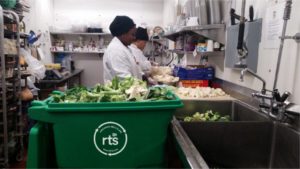 Food waste recycling in Boston – Government action
Food waste recycling in Boston – Government action
Since 2014, the Massachusetts Department of Environmental Protection has banned the disposal of commercial organic waste by businesses and institutions that produce more than one ton each week. The initiative was introduced to try and divert at least 35% of food waste from landfill by 2020.
Businesses were encouraged to find alternative ways of dealing with food waste, including composting, recycling, or reuse, and the benefits for businesses were presented as lower waste management costs and lower purchasing expenditure. The ban affected around 1,700 establishments, including hospitals, schools, colleges, food manufacturers, and more. All of which had to develop new systems to prevent food waste from ending up in landfill.
Food waste in Boston: A business response
The US Environmental Protection Agency (EPA) has produced a guide on how to prioritize food waste. This hierarchy aims to inform businesses how best to deal with their organic waste. Key amongst the recommendations is increased donations to food banks.
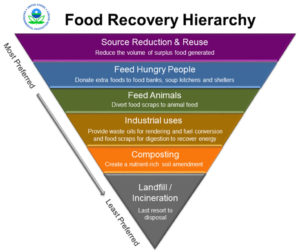
Source: nrdc.org/
For food waste that cannot be donated, the US EPA has recommended either anaerobic digestion or composting. The Massachusetts EPA has supported both composting and digestion facilities through targeted grants and loans, providing technical assistance and training where necessary.
The department also works with haulers to find efficient ways of collecting food waste and locate suitable generators in their area. They also regulate compost facilities to ensure they are promoting sustainability and environmentally beneficial practices.
The 2014 waste disposal ban has had some success. Food donation in the state increased 22% and food rescue went up by 60% from 2014 to 2017, with less dramatic but still significant increases subsequently. But it’s not just big waste generators that need to be mindful. Small businesses and private residents also need to reduce, reuse, and recycle.
What to do with food waste in Boston — A small business and resident’s guide
The ultimate goal for any edible food waste would be to either consume it as leftovers or donate to a food bank. Small businesses and other organizations should be aware of the Good Samaritan Food Donation Act, which protects donors from liability.
Residents and small businesses can donate to any of the following facilities for food waste in Boston:
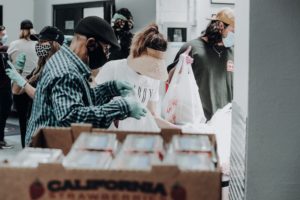
- The Greater Boston Food Bank
- 70 S Bay Ave, Boston, MA 02118
- St Anthony Shrine/Franciscan Food Center
- 100 Arch Street, Boston, MA – 02110
- Rosie’s Place Pantry
- 889 Harrison Ave, Boston, MA – 02118
- International Institute of Boston Pantry
- 1 Milk St., 4th Floor, Boston, MA – 02109
You can find a more extensive list of Boston’s food pantries here:
Non-profits have also been leading the way by connecting residents and businesses with people in need. Founded in 2010, Lovin’ Spoonfuls has diverted more than 7.5 million pounds of food created by smaller grocery stores, farmers markets, and restaurants from landfill. They have delivered much of this to social service agencies or meal programs.
Boston Area Gleaners and Food for Free have been doing similarly good work. There is even a non-profit grocery store that sells only surplus foods. The Daily Table has been thriving on Washington Street since 2015.
What to do with leftover food waste — Composting in Boston
Not all food waste is edible, so alternative solutions need to be in place, and one of the easiest and most efficient is composting. Yet, there’s no doubt that some households and small businesses have found food composting difficult.
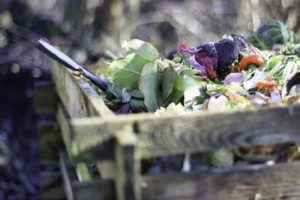 While the city encourages backyard composting and has a dedicated yard waste composting site, collecting on certain days, there is still no city-wide food recycling program at a curbside level.
While the city encourages backyard composting and has a dedicated yard waste composting site, collecting on certain days, there is still no city-wide food recycling program at a curbside level.
A request for information (RFI) program was set up in 2019 with the aim of compiling the information needed to develop such a program but the focus remains on educating people to deal with their own waste in a responsible way.
For those unable to set up their own composting bin, there are private compost pick-up services. For a monthly fee, these food waste services can pick up and transport your food waste to a local composting or digestion site.
There are also free drop off composting sites available across the city, including:
- City Soil
480 American Legion Hwy, Boston, MA 02131, United States - Landscape Express
415 American Legion Hwy, Boston, MA 02131, United States - Cambridge Recycling Centre
147 Hampshire St, Cambridge, MA 02139, United States
 It is estimated that around 36% of the total waste produced by the city is compostable. Boston’s food waste that is suitable includes:
It is estimated that around 36% of the total waste produced by the city is compostable. Boston’s food waste that is suitable includes:
-
- Fruits, vegetables, and eggshells
- Coffee, tea, and nuts
- Dried flowers and houseplants
- Bread, grains, and pasta
- Meat, fish, and dairy

Some other food that is generally not accepted is:
- Pet waste and kitty litter
- Medical waste, diapers, and personal hygiene products
- BPI-certified compostable plastic products
How to dispose of cooked food waste in Boston — More about Digesters
Food that cannot be composted can often be recycled through a process of anaerobic digestion. This is an oxygen-deficient environment that produces methane in a regulated way. This can in turn be used as a more sustainable energy source. Solid by-products can also be used as a powerful fertilizer, adding nutrients back to the soil and closing the loop on the food circle.
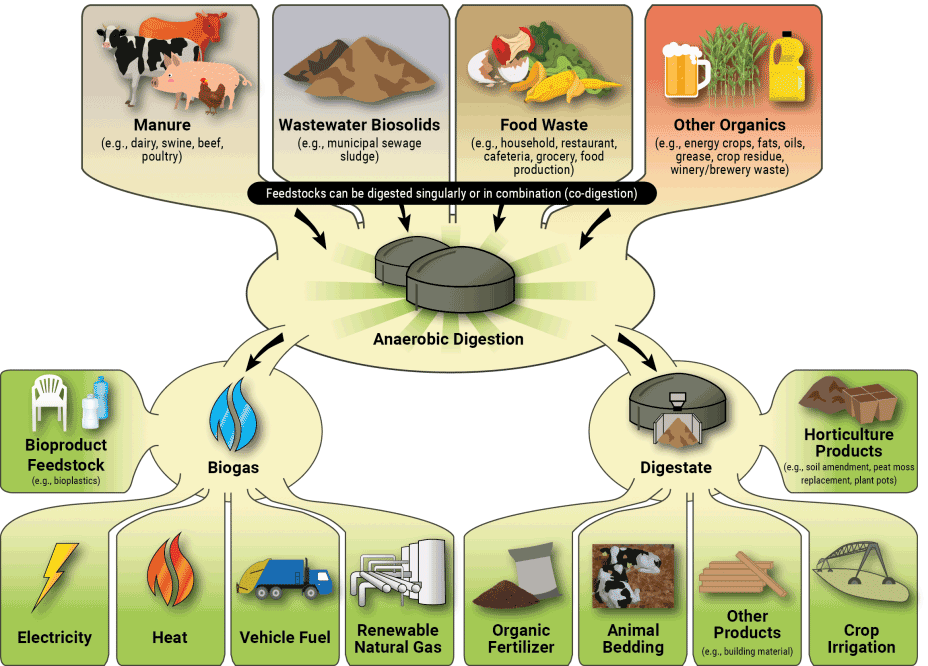
Source: epa.gov
Some private companies are already investing in their own digestion technologies. Businesses such as Stop & Shop process up to 95 tons of food a day in their own digestor. This in turn produces 40% of the power for its distribution facility.
For companies looking to divert their waste to digestion but without the scope to build their own facility, there is capacity at Waste Management’s CORe processing facility and Greater Lawrence Sanitary District. These are designed to process Boston’s food scraps with biosolids.
For more information on sustainability and how RTS is working with businesses to deliver sustainable waste management, subscribe to the blog today. Additionally, speak to one of our TRUE Advisors to see how your business can become more sustainable.

